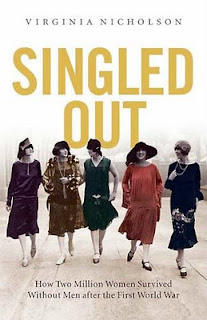It's that time of week again -- not quite the time when #Hamalong posts are due, but a little afterward.
We're just on part three of the readalong (chapters ten through fourteen) but I may be starting to flag a bit. Only... four hundred pages to go?! Geez. This book is so unnecessarily long it makes me mad sometimes. You need look no further for an example than page 247:
Sometimes you come across a conflict in your sources, and you have to make a decision: do you think one or another option is more convincing, or do you present both and give them equal weight? But you know what you do first? YOU SHOULD CONSIDER WHETHER ANYONE, ANYONE ON EARTH, CARES OR SHOULD CARE. Honest to goodness, it's a scandal the way publishers cut corners on editing these days.CHERNOW, this is why your book is so long bro pic.twitter.com/qyPQm4x5M8— Julie (@jfount) January 19, 2016
I've seen other Hamalongers commenting on Chernow's fanboying over Hamilton, and on that note my criticisms from last time stand. The thing I would add to that, which comes to the fore especially in this section as we get lots and lots of constitutional wrangling, is that he has what I would call an American historian's narrow vision. Yeah, that's right! I went there!
So Hamilton apparently gave an insanely long speech at a confidential convention (so it's poorly documented) that is a Big Deal because many people have taken this speech as characteristic of Hamilton's real opinions, and not in a good way. I say "apparently" because Chernow approaches this event as someone who has read and re-read every two-bit Hamilton biography ever attempted: that is, he eagerly jumps into discussing this speech as something that obviously we all know is a big deal. I thought he could have done a better job with setting this up, but ok, whatever.
The thing that got me -- and it's not just Chernow I'm picking on here -- is that apparently Hamilton's suggestion of an "elective monarchy" is some huge unforgivable sin. R U SRS? Constitutional monarchy -- yeah, the hereditary kind -- remains a very respectable liberal goal in Europe for at least another hundred years. I really don't understand why it's so outrageous for Americans to be putting forward ideas that are really not that far off the wall in any context except comparing them to what actually happened and we've decided has worked and therefore, in retrospect, was "right". Or, okay, I can understand why people might feel this way, but I don't understand how people who call themselves historians can write history this way. (I may be a little tired and cranky as I write this. Or a lot tired and cranky.) It's bizarre. Chernow himself writes that "admiration for the British political system was still widespread" right in between calling Hamilton's proposal "atrociously misguided" and a "blunder". The last two judgments appear in the text as Chernow's own.
Anyway, I don't want to just be negative. I was gratified by Chernow's statement that "those who criticize Hamilton for having engaged in a propaganda exercise in The Federalist must reckon with the tremendous continuity that connects the Federalist essays to both his earlier and later writings" (257). This is the kind of judgment that I am happy to accept from him. Maybe it's just the weight of being further along in the book, but this thesis about consistency is convincing and a satisfying way to understand a life. Incidentally, this characterization is part of what makes the musical so great too.
In this section I kept thinking about Hamilton the auto-didact: has there ever been any other time in history when someone could be so well self-taught? I mean, in the 18th century not only were there low barriers to obtaining the latest and greatest in any field at all, but few enough barriers on someone who had actually taught it to himself instead of having a degree to certify it. I suppose part of it was that the system of academic disciplines we take for granted today hadn't formed yet. Men of the Enlightenment weren't studying economics; they were (or thought they were) simply observing trade and drawing conclusions. Anyone who could, could play along. Hamilton had quite worldly reasons for pursuing his advancement this way; he seems like the ideal type of the Enlightenment scholar but maybe with a little more unapologetically practical ambition.
Confession time: here's what I got. I didn't actually make it through Chapter Fourteen yet, which I'm kicking myself over because flipping ahead it looks pretty good. If it is, maybe I'll include it next week. And on that note, adieu until next week!






.JPG)





